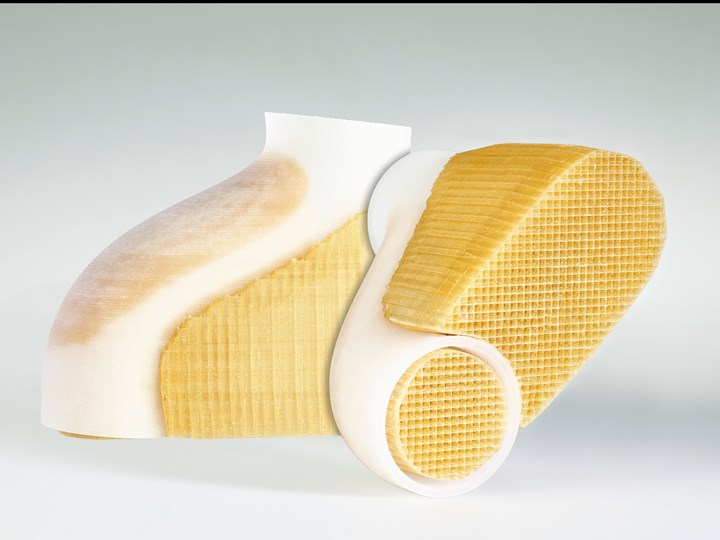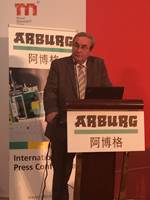Updated Software Makes Additive Manufacturing Platform Up to 55% Faster
Arburg says the software on its Freeformer additive manufacturing platform now optimizes the printing of water-soluble support materials in a grid structure.
Arburg has optimized the software for its Freeformer additive manufacturing machines so that all water-soluble Armat support materials can be applied in a grid structure that is optimized for Arburg Plastic Freeforming (APF). The company says this advance will shorten build times in the APF process by up to 55% while also reducing material consumption. The water-soluble support material is washed away without manual finishing work.
Arburg will unveil the advance at the rapid + tct 2022 show (May 17-19; Detroit). The company says the faster build speed is possible due to the optimization of the Freeformer software. Going forward, all components with geometries that require a support structure will have the water-soluble Armat 11 and Armat 12 materials applied onto the moving part carrier in a process-optimized grid structure.
Filling these supports at a level of only around 20% results in lightweight structures that can also be removed more quickly than before without finishing work in the next step. Because of this, the grid structures save time during the build, and by reducing the required amount of support material, they also save material and costs.
At rapid + tct 2022, a Freeformer 300-3X will produce an S-shaped pipe out of PP with water-soluble Armat 12 as the support material. With this example, the grid structure reduces the build time by around 50%. To help quantify the potential time savings, Arburg points to the 1:16-scale functional model of a toggle-type clamping unit from an Allrounder injection molding machine that was printed during K 2016 trade with APF. At that time, the build time for the ABS component, including support material, was more than 200 hours. Thanks to the grid structure, the build time can now be reduced by 54% to 92 hours. The support material, weighing 600 grams, can be washed out completely in 10 minutes, leaving behind the toggle model with around 30 moving joints.
Arburg collaborates with universities and established material partners when developing new support materials for the Freeformer. The water-soluble support material Armat 11 is the standard choice for many materials such as ABS. Armat 12, which is also water-soluble, is offered by Arburg specifically for PP.

Arburg’s planned rapid + tct example shows an S-shaped pipe made from white PP with Armat 12 as the support material.
Photo Credit: Arburg
Related Content
-
Daimler, OMIC Evaluate Wire-Fed DED for Moldmaking
3D printing a core and cavity on machine from Gefertec, followed by machining, allowed for a complete mold tool to be produced in three days.
-
Additive Fusion Technology Optimizes Composite Structures for Demanding Applications
9T Labs continues to enhance the efficiency of its technology, which produces composite parts with intentionally oriented fibers.
-
Production Tool, Prototype Time
Mantle's metal 3D printing technology targeted toolmaking and injection molders and moldmakers are taking notice.














